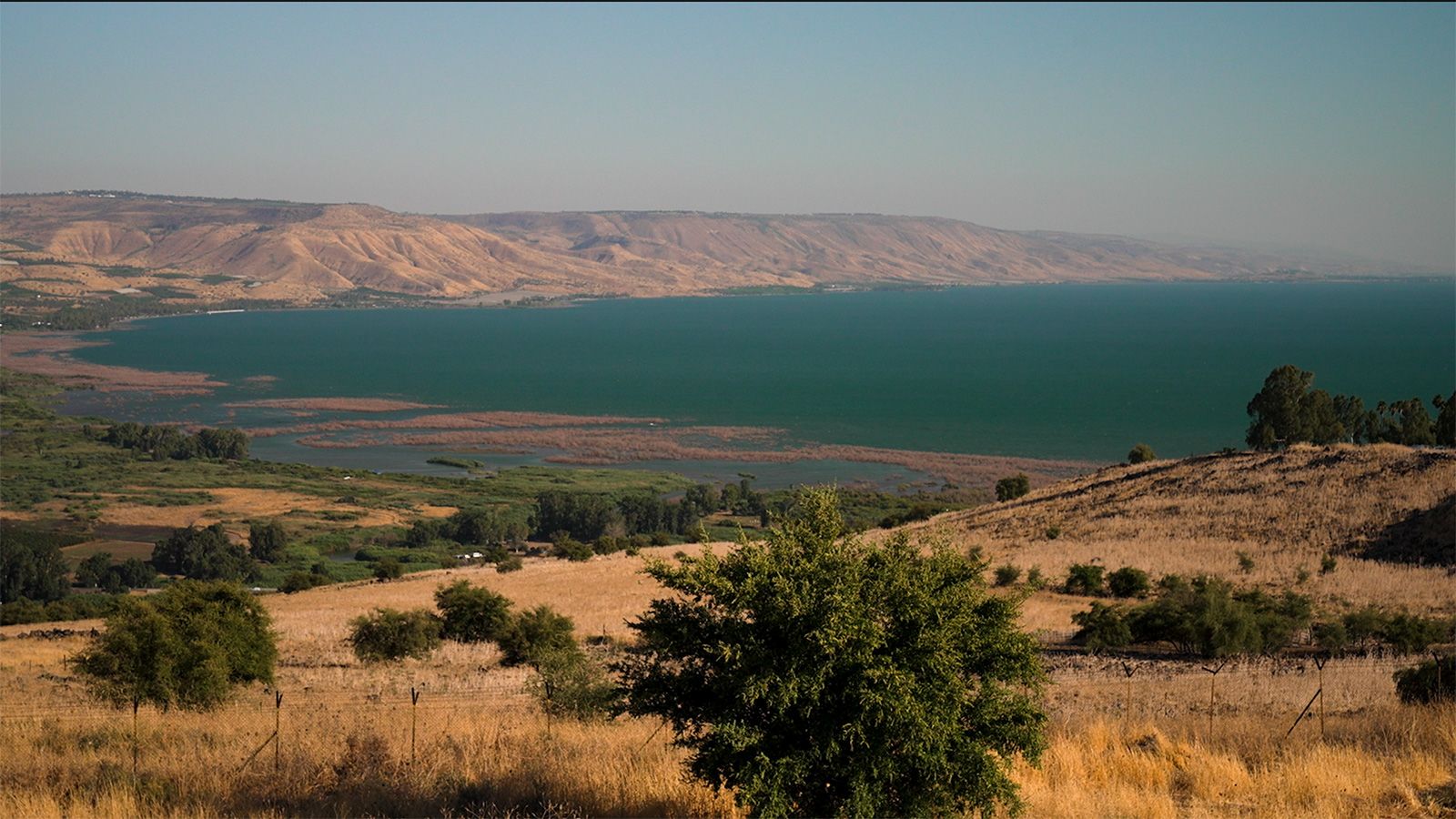
The Sea of Galilee, also known as Lake Tiberias, is a mesmerizing body of water located in Israel. It holds immense historical, cultural, and religious significance, captivating visitors from all over the world. This magnificent lake, nestled in the beautiful surroundings of the Galilee region, has amazed people for centuries with its unique characteristics and fascinating stories.
In this article, we will delve into 15 astonishing facts about the Sea of Galilee that will open your eyes to the wonders of this remarkable destination. From its breathtaking natural beauty to its remarkable religious importance, the Sea of Galilee has countless secrets waiting to be discovered. So, let’s dive in and uncover the mysteries that make this awe-inspiring lake truly remarkable.
Key Takeaways:
- The Sea of Galilee is a fascinating freshwater lake in Israel, known for its rich history, diverse wildlife, and therapeutic waters, making it a must-visit destination for tourists and spiritual seekers alike.
- From biblical miracles to stunning sunsets, the Sea of Galilee offers a unique blend of natural beauty and historical significance, making it a captivating and rejuvenating retreat for visitors from around the world.
A Source of Inspiration
Nestled in the northern part of Israel, the Sea of Galilee, also known as Lake Kinneret, is an awe-inspiring natural wonder that captivates visitors from around the globe.
A Geological Marvel
This freshwater lake, measuring approximately 53 square miles, is the largest freshwater lake in Israel and the lowest freshwater lake on Earth, situated an astonishing 686 feet below sea level.
An Abundance of Life
The Sea of Galilee is home to a rich ecosystem, housing over 27 different species of fish, including the indigenous St. Peter’s fish. The thriving marine life and flourishing vegetation surrounding its shores add to its allure.
A Historical Haven
The Sea of Galilee has played a significant role throughout history. It is mentioned numerous times in the Bible and is considered a holy site for Christians due to its association with Jesus Christ and many biblical miracles.
Walking on Water
According to the Bible, it is believed that Jesus Christ walked on the waters of the Sea of Galilee. This miraculous event has become an iconic symbol of faith and divine power.
Water in the Desert
The Sea of Galilee serves as a vital water source for the arid region of Israel. It provides irrigation to the surrounding farmlands, helping to sustain agriculture in the area.
Healing Waters
The Sea of Galilee is known for its unique therapeutic properties. The mineral-rich waters are believed to have healing effects and are often used for medicinal purposes, drawing visitors seeking rejuvenation and health benefits.
A Popular Tourist Destination
With its breathtaking landscape, historical significance, and recreational activities, the Sea of Galilee attracts millions of tourists each year. Visitors can enjoy sailing, fishing, swimming, and exploring the picturesque towns that dot its shores.
Surrounding Spiritual Sites
The Sea of Galilee is surrounded by numerous important religious sites, including Capernaum, Tabgha, and the Mount of Beatitudes. These sacred locations attract pilgrims and spiritual seekers from various faith traditions.
Mysterious Underwater Archaeology
Beneath the calm surface of the Sea of Galilee lies a treasure trove of archaeological discoveries. Excavations have uncovered ancient boats, structures, and artifacts, giving insights into the region’s rich history.
Varying Water Levels
The water levels of the Sea of Galilee can fluctuate significantly throughout the year. It is heavily dependent on rainfall, with the winter months bringing a rise in the water level, while the summer months often see a decrease.
Captivating Sunsets
Witnessing the mesmerizing sunsets over the Sea of Galilee is a breathtaking experience. The vibrant hues reflecting on the tranquil water create an enchanting ambiance that leaves visitors in awe.
A Sanctuary for Migratory Birds
The Sea of Galilee serves as a crucial stopover point for thousands of migratory birds during their annual journey. Birdwatchers flock to its shores to witness the diverse array of species that grace the area.
Miraculous Fishing Abundance
The Sea of Galilee has long been known for its abundant fish population. It continues to be a thriving fishing spot, providing sustenance for the local communities and offering opportunities for anglers to reel in a memorable catch.
The Beauty of Nature
Surrounded by lush greenery, rolling hills, and picturesque landscapes, the Sea of Galilee showcases the inherent beauty of nature. Its tranquil ambiance and serene atmosphere offer a respite from the hustle and bustle of daily life.
With its enchanting beauty, historical significance, and captivating aura, the Sea of Galilee stands as a testament to the wonders of the natural world. Whether you seek spiritual solace, historical exploration, or simply a breathtaking getaway, this extraordinary destination is sure to leave an indelible mark on your heart.
Conclusion
In conclusion, the Sea of Galilee is an incredibly fascinating body of water. With its rich history, biblical significance, and unique natural features, it truly stands out as a remarkable place. Whether you visit for its religious importance, to experience the serene beauty, or to explore its intriguing underwater world, the Sea of Galilee offers a multitude of wonders to discover. From its changing water levels to its astonishing wildlife and the ancient relics that lie beneath its surface, there is always something new to learn and marvel at. So next time you find yourself in the beautiful region of Galilee, make sure to take a moment to immerse yourself in the awe-inspiring sights and stories of the Sea of Galilee.
FAQs
1. What is the Sea of Galilee?
The Sea of Galilee, also known as Lake Kinneret, is a freshwater lake located in northern Israel. It is the lowest freshwater lake on Earth and the largest freshwater lake in Israel. It holds significant historical and religious importance.
2. How deep is the Sea of Galilee?
The Sea of Galilee reaches a maximum depth of approximately 43 meters (141 feet). Its depth can vary due to rainfall and other environmental factors.
3. What makes the Sea of Galilee unique?
The Sea of Galilee is unique for several reasons. It is a major water source for Israel and provides vital irrigation for the surrounding region. It is also known for its stunning panoramic views, diverse wildlife, and its association with biblical stories and miracles.
4. Can you swim in the Sea of Galilee?
Yes, swimming is permitted in the Sea of Galilee. Its calm and warm waters attract locals and tourists for recreational activities such as swimming, fishing, and boating.
5. Are there any notable historical sites near the Sea of Galilee?
Around the Sea of Galilee, you can find several significant historical sites. Some of the notable ones include Capernaum, Tabgha, and the Mount of Beatitudes, which are all mentioned in the New Testament of the Bible.
6. Can you visit the Sea of Galilee year-round?
Yes, the Sea of Galilee is accessible to visitors year-round. However, it is recommended to check the weather conditions and plan your visit accordingly to fully enjoy the activities and attractions in the area.
Thirsty for more captivating facts about this iconic body of water? Quench your curiosity with our mind-blowing exploration of Galilee Sea's hidden wonders. If you're keen on uncovering the astonishing truth behind Lake Kinneret, our surprising revelations will leave you in awe. Dive deeper into the fascinating world of this sacred lake and unlock its best-kept secrets today!
Was this page helpful?
Our commitment to delivering trustworthy and engaging content is at the heart of what we do. Each fact on our site is contributed by real users like you, bringing a wealth of diverse insights and information. To ensure the highest standards of accuracy and reliability, our dedicated editors meticulously review each submission. This process guarantees that the facts we share are not only fascinating but also credible. Trust in our commitment to quality and authenticity as you explore and learn with us.


